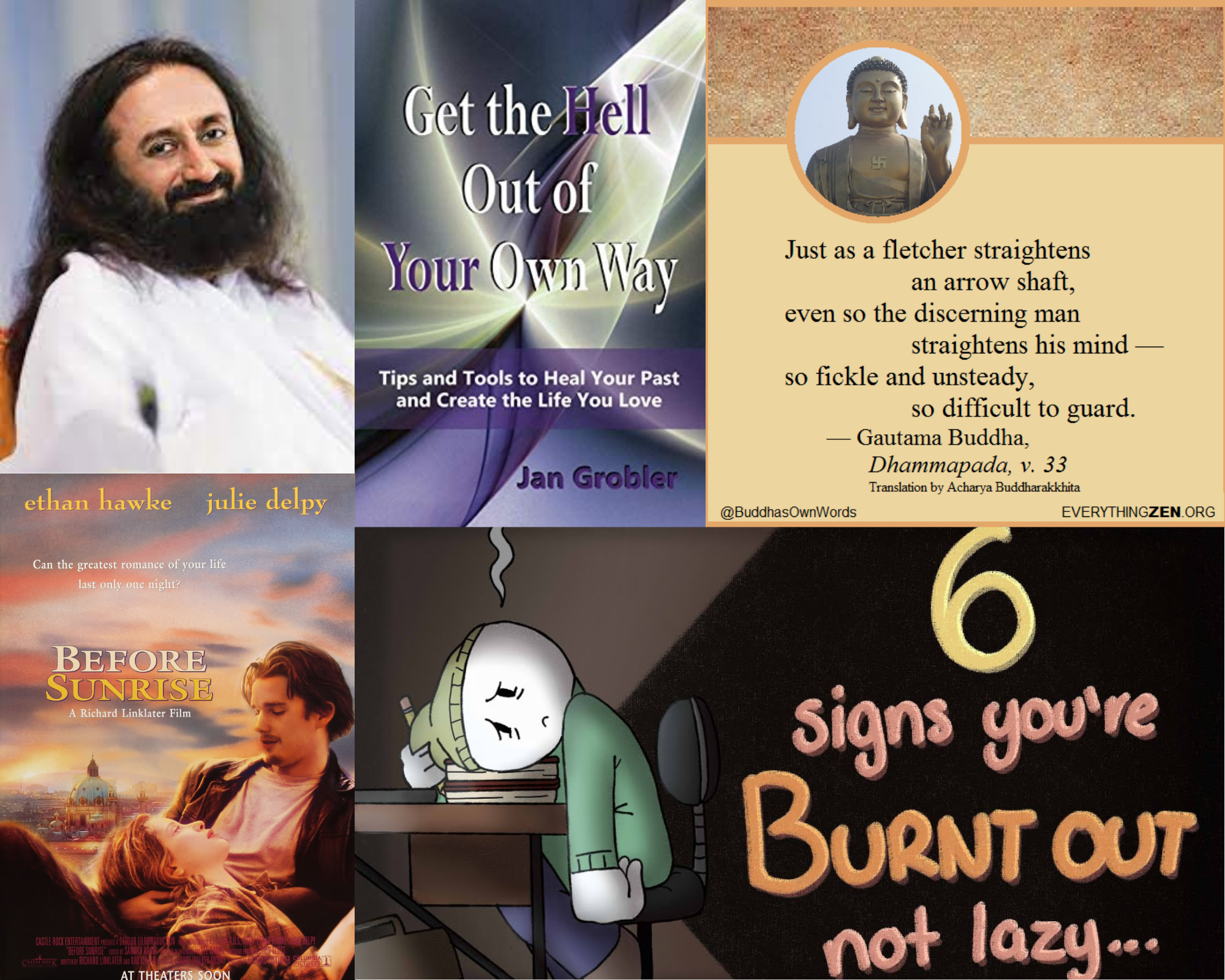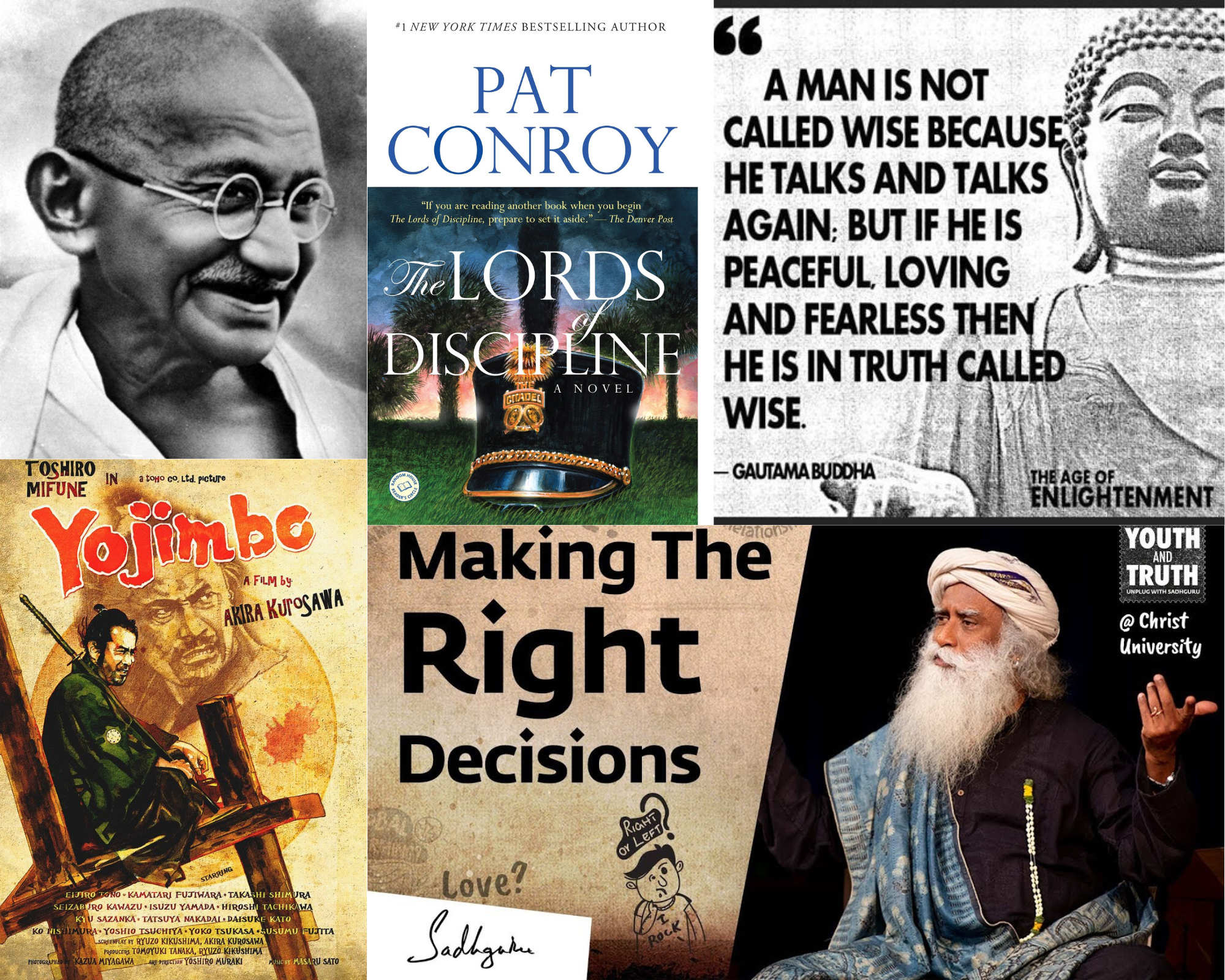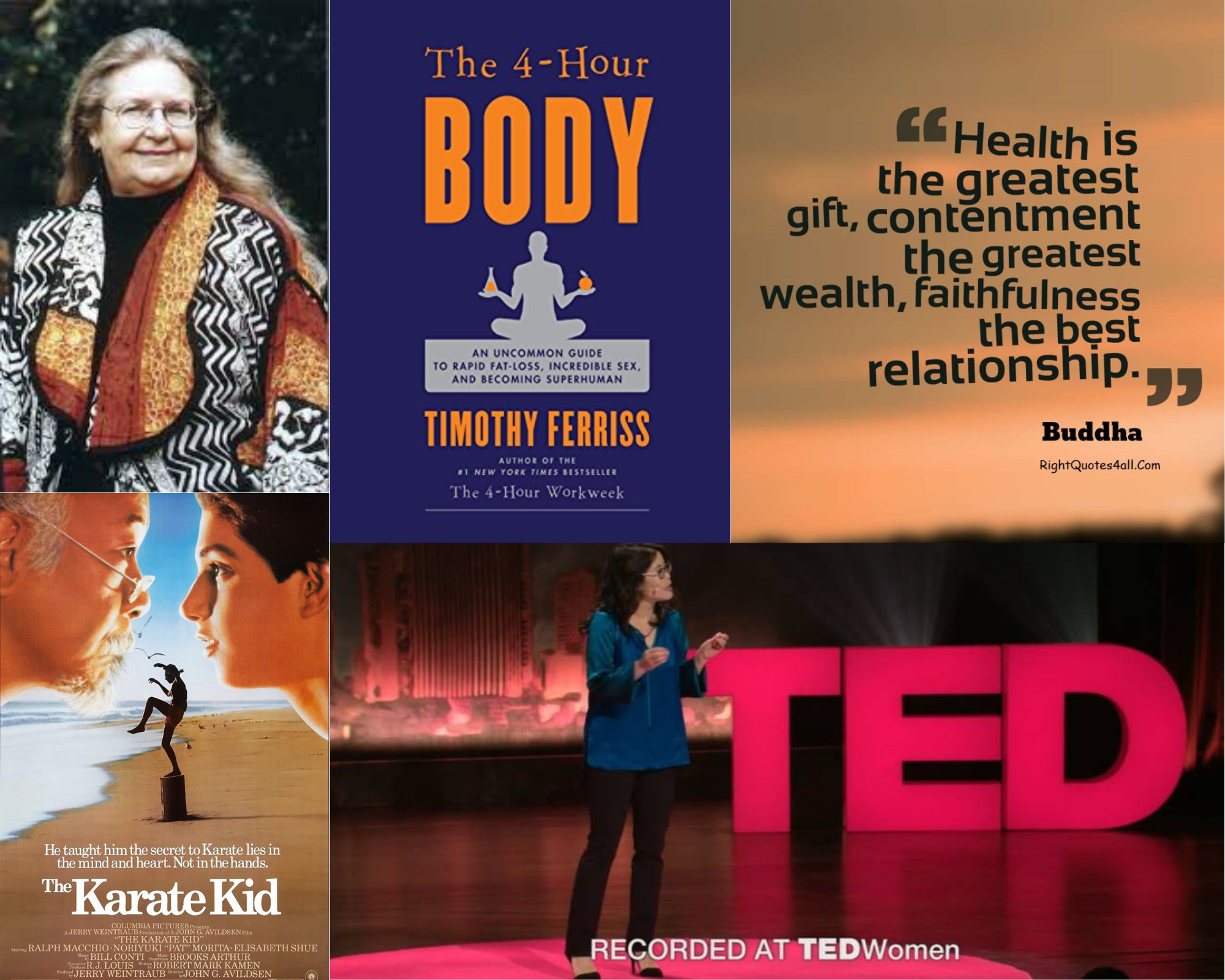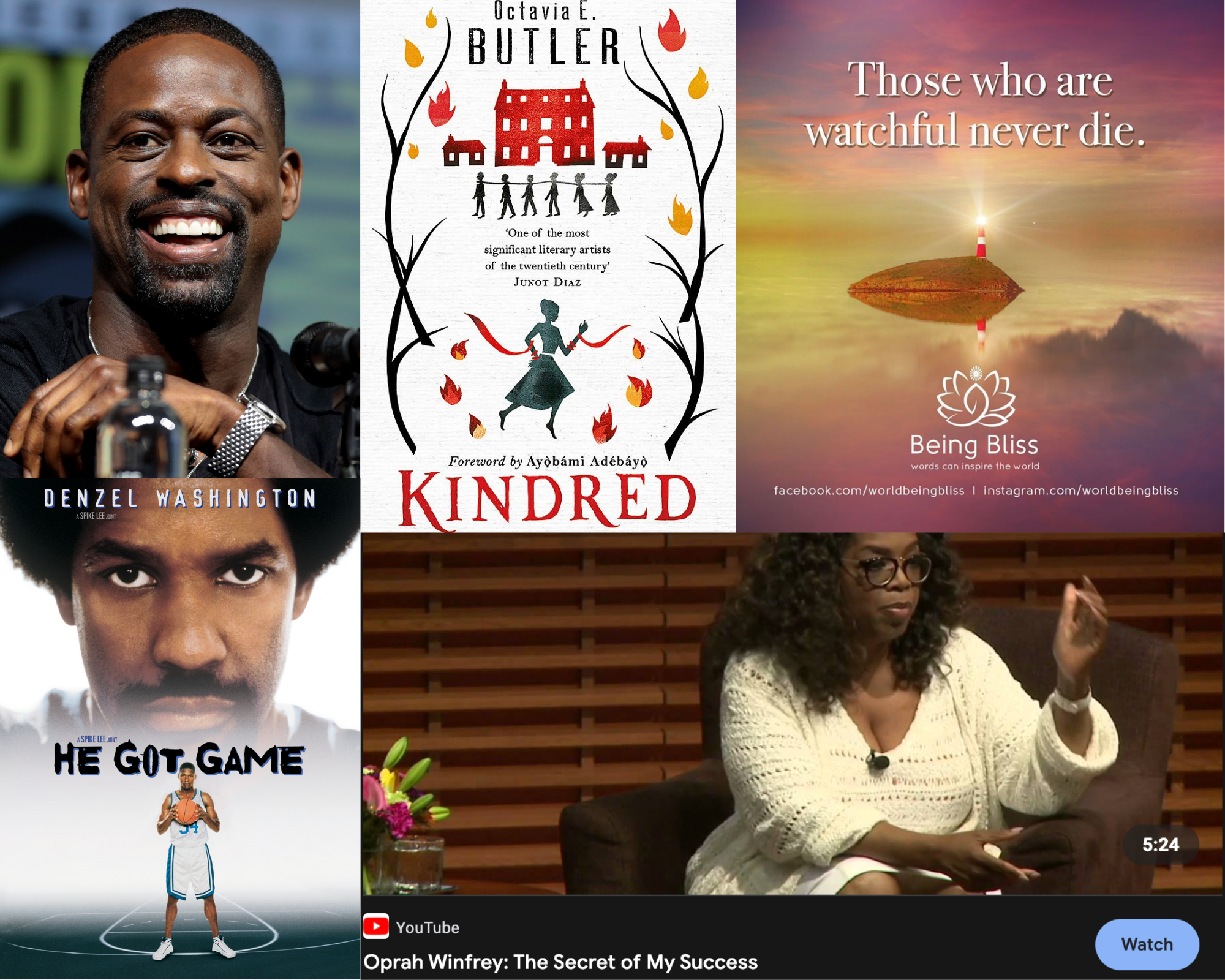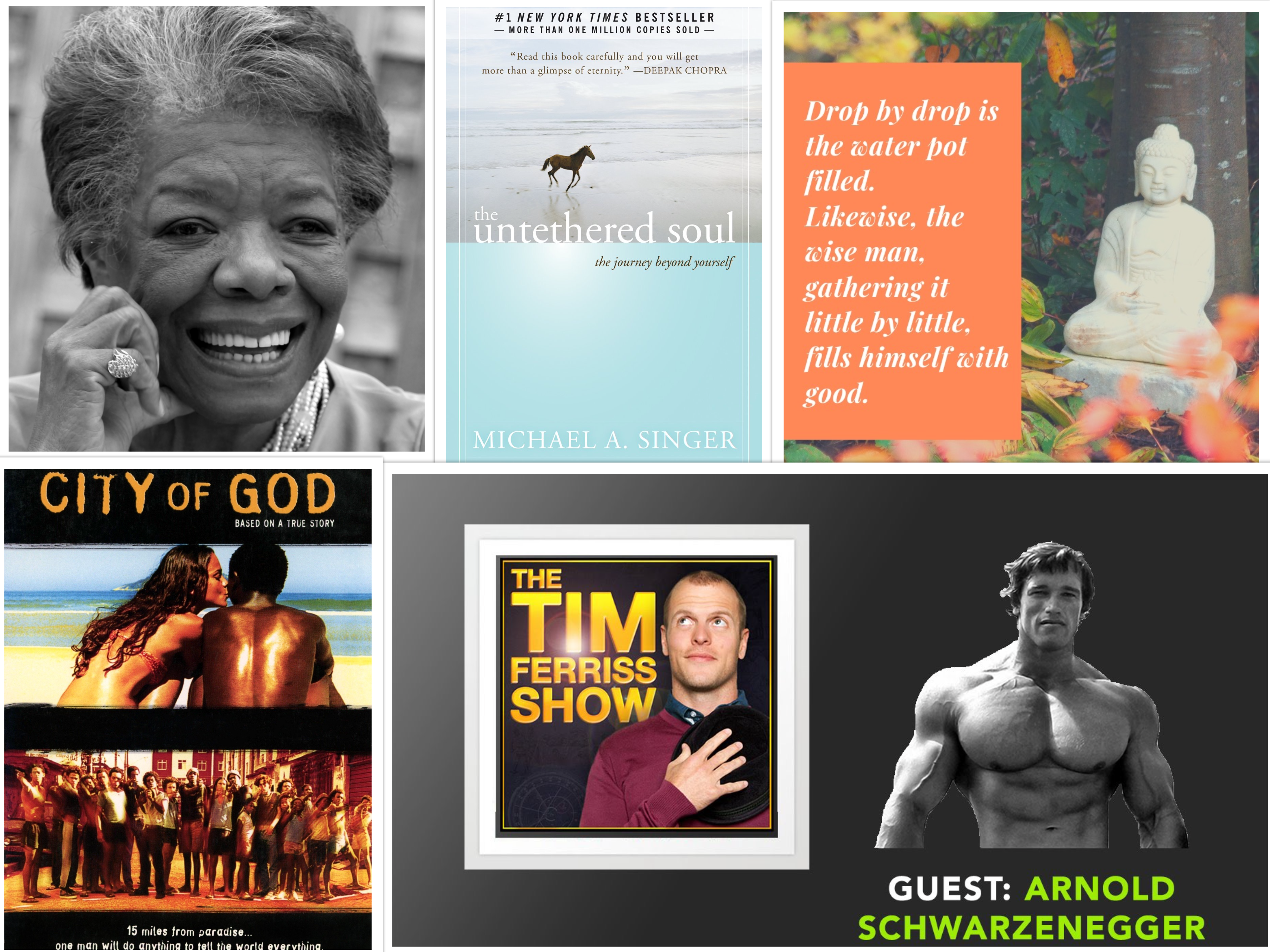Sunday Supplement #76 (October 23rd, 2022)
Below is another Sunday Supplement with a quote worth sharing, a book worth reading, a movie worth watching, brainfood worth consuming, and a spiritual passage worth pondering.
I hope you take something away from these recommendations that enriches your week ahead!
Quote of the Week:
“Wisdom is knowing when to have rest, when to have activity, and how much of each to have.”
– Sri Ravi Shankar
Book of the Week:
Get the Hell Out of Your Own Way – Jan Grobler
Jan Grobler is a Life & Transformation Coach, Cognitive Behavioral Therapist, Psychological Kinesiologist, and Teacher.
Get the Hell Out of Your Own Way contains the lessons Grobler learned along his journey that helped him heal his past trauma and obtain freedom to move forward.
The book is divided into three parts: How We End Up in Our Own Way, Cutting the Key to Your Freedom, and Be & Stay in the Driver’s Seat of Your Life.
What I enjoyed most about the book was the combination of wisdom the text provided and the prompts in the book to help you take actionable steps forward in your life.
Get the Hell Out of Your Own Way is an engaging read that leaves you with many gems to bring into your life.
Movie of the Week:
I’ve only seen the first film in Richard Linklater’s Before trilogy, but it’s a movie I find myself thinking about long after I’ve seen it.
The story follows a young man and woman as they meet on a train in Europe and spend one evening together in Vienna.
Most of the movie focuses on the dialogue between the two characters as they explore their contrasting ideas and perspectives on life and love.
Before Sunrise premiered at the Sundance Film Festival and grossed $22.5 million from a $2.5 million budget.
The movie is an intriguing watch for its exploration of postmodern views on love and appears on many watch lists with favorable reviews from critics.
Brainfood of the Week:
6 Signs Your Burnt Out, Not Lazy | Psych2Go
Psych2Go’s mission is to make psychology and mental health more accessible to everyone. Their YouTube page has just shy of 10 million followers.
This Psych2Go video defines burnout as a negative state of emotional, physical, and mental exhaustion caused by excessive stress and the inability to cope with it.
There are many overlaps between laziness and burnout, and it’s important to know the difference to recognize early signs.
Psycho2Go’s video is not a substitute for professional advice, but it is a good source of general education.
I’ve featured Psycho2Go before in Sunday Supplement #66 and recommend checking out their channel.
Closing Spiritual Passage:
“Just as a fletcher straightens an arrow shaft, even so, the discerning man straightens his mind— so fickle and unsteady, so difficult to guard.”
– Dhammapada 33
This verse from the Dhammapada reminds me of the constant task of attending to our minds.
I think of moments in my past when I’ve been happy with where I’m at but didn’t continue on the path of reflection and improvement.
The Dhammapada passage points out how the mind can be fickle, unsteady, and difficult to guard. It requires constant work.
The example reminds me of the necessity for continuing to exercise if you want to stay in shape. You can’t stop once you reach a certain point and expect to stay in shape.
Make tweaks to the arrow of your life to improve its flight, and have a blessed week ahead!
6 Comments